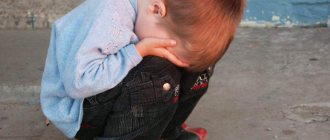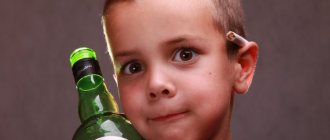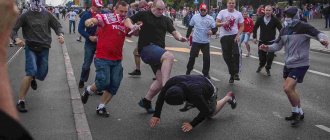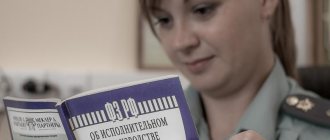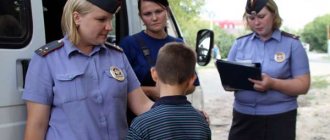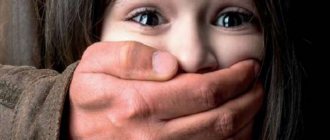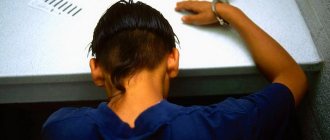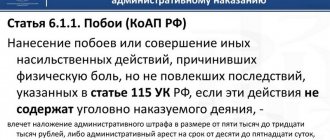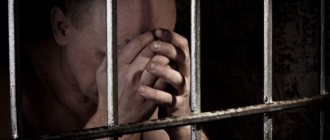In modern society, child abuse is not uncommon. Representatives of the younger generation quite often face moral or physical violence from parents, teachers or other adults. At the same time, the legislation clearly establishes the measures of what is acceptable when communicating with children, both for parents and participants in the education system, and for all members of society. Many adults and children whose interests have been violated want to know whether parents have the right to beat their children.
Is this legal?
Beating children is strictly prohibited by law. To the question whether parents have the right to beat their children, the answer is clearly negative. Legislation protects children from any violence, establishing strict penalties for such actions. On the one hand, criminal liability comes for beating any person, both an adult and a child. On the other hand, the law provides for enhanced criminal liability for causing damage to the health of a minor.
When asked whether parents have the right to beat their children, the law gives a precise answer. The articles of the Family Code clearly state that parents or guardians do not have the right to use physical violence against a child.
In the modern world, with the increase in cruelty, the number of children affected by violence, both from adults and from peers, is increasing. Both parents and children must understand that no child is immune from such incidents. But this happened. What should parents and child do? What should I do? Where to go and how to restore justice?
Step 1: Assess the situation
The first thing to do is pull yourself together and under no circumstances panic. Remember that as long as you have not committed any actions out of revenge, the law is on your side. As soon as you start a “showdown” with the offenders or his parents, you may suffer yourself. Therefore, you need to approach the issue in a balanced and intelligent manner.
The first thing to do is to assess the severity of the beatings inflicted. If your child urgently needs medical attention, call an ambulance! If the injuries are not life-threatening, but signs of beatings or deterioration in health are visible, take the child to a medical facility. If the child only has a black eye and a couple of abrasions, it is necessary to undergo a forensic examination. In any case, the first step is to provide first aid and document the beating.
Step 2. Document the beatings
When entering a medical facility with injuries, the doctor is obliged to find out from the patient where he received them. If the patient explains that he was beaten, then a telephone message is sent to the police duty station. The message is registered in KUSP. A police officer arrives at the hospital within 24 hours and takes an explanation for the beating. The application is accepted.
Next, the persons indicated in the explanation as participating in the beating are interviewed, witnesses, teachers, and parents are interviewed. These documents form the basis for verification of the application. Within 3 days (and if the period is extended by the head of the inquiry body, up to 10 days), a procedural decision must be made. This may be a decision to transfer an application under jurisdiction, to initiate a criminal case, or to refuse to initiate a criminal case. If an examination is necessary, the inspection period may be extended by the prosecutor to 30 days.
The final examination can be carried out after the end of treatment. Remember that while there is no examination, there are no grounds for initiating a criminal case. According to the Code of Criminal Procedure of the Russian Federation, an official, if there is an application, must send the application to the magistrate, since Art. 116 and Art. 115 of the Criminal Code of the Russian Federation, Part 1, under which a case can be initiated, relate to cases of private prosecution. After the criminal case is accepted for proceedings, after the private prosecutor files a private prosecution application under Article 318 of the Code of Criminal Procedure of the Russian Federation, a criminal case is initiated.
Reference: criminal liability for this category of crime in accordance with Part 1 of Art. 20 of the Criminal Code of the Russian Federation begins at the age of 16. Part 2 of the same article establishes criminal liability for persons over 14 years of age if intentional infliction of harm to health is proven (Article 111, 112 and others).
Often the beating of a child by peers is planned in advance. He is called outside to a secluded place, where several more people are already waiting. Often events are filmed on mobile phones. There is an opinion that it is imperative to find these records as evidence of the beating. It is important to understand that you do not need these records. If they exist, good, they can be attached to the case materials. If not, the traces of beatings recorded on the child’s body are the best evidence, and the investigation has other, more effective methods of conducting an investigation. A criminal case is initiated based on the fact of the crime, according to the signs of the crime, and not based on the presence or absence of evidence.
Step 3. Bringing the matter to completion
If at the previous stage a criminal case was not initiated or a criminal case was refused, the child’s parents can apply to the magistrate with a private prosecution. To do this, you need to have a statement and a decision of a forensic expert in hand. It is advisable to contact a lawyer to competently draw up a statement of claim.
Reference: a concussion even with a closed craniocerebral injury (without any fractures of other bones) is interpreted by forensic experts as the absence of even slight harm to health and no criminal case is initiated.
In accordance with Art. 1074 of the Civil Code of the Russian Federation, minors aged fourteen to eighteen years are independently responsible for the harm caused on a general basis. However, in cases where a minor does not have income or other property sufficient to compensate for the damage, the damage must be compensated by his parents or guardian. In accordance with the family legislation of the Russian Federation, parents until the child reaches 18 years of age are obliged to take care of his moral, moral and physical development.
In this regard, the parents of the victim need to seek to bring the parents of the perpetrators to civil liability in the form of reimbursement of treatment costs, compensation for moral damage, recovery of the so-called fixed lost earnings for the rehabilitation period, lawyer’s costs, etc.
Therefore, an application is submitted to collect from minors and their legal representatives in favor of the victim compensation for moral damage and reimbursement of expenses incurred, with all documents, certificates, etc. attached.
Conclusion
If the court satisfies the demands, more than 50 thousand rubles may be recovered from the perpetrators and their legal representatives in favor of the injured child. The main thing you need to understand in this situation is not to sit idly by! We need to act! Even when the application is filed, parents can find as much dirt as possible on the offenders, take good characteristics of their child, and enlist the support of witnesses and competent people.
If problems arise, the matter can be made public by writing on social networks and popular Internet resources. The main thing is not to be silent! After all, it is the feeling of impunity that often pushes people to commit more serious crimes.
Punishment for beating children
It is not entirely appropriate to ask whether parents can hit their children. Such actions are clearly illegal and will result in punishment. Depending on the severity of the harm caused to the child, criminal or administrative liability is applied to the person who violated the rights of the child. Some adults, not knowing the answer to the question of whether parents have the right to beat their children, violate the law when treating a child. In some cases, such adults may be deprived of parental rights by guardianship officials.
What is considered "beating"
There are special criteria intended for forensic medical examination, which determine the various degrees of harm caused to human health. The law distinguishes between severe, moderate and mild harm. The article of the Criminal Code under which the perpetrator will be judged depends on what kind of damage the victim received.
“ Minor harm ” is a temporary impairment of body functions that leads to disability lasting up to three weeks, or to “permanent disability” of less than 10%.
In other words, if as a result of the beating the victim ended up on sick leave, but had to undergo treatment for less than three weeks, it means that her health was harmed to a “mild degree.” For this, the offender may receive punishment under Article 115 of the Criminal Code: a fine of up to 40 thousand rubles, or compulsory labor for up to 480 hours, or correctional labor for up to 1 year, or arrest for up to 4 months.
If the harm was caused from hooligan motives or for religious, political, racial, etc. reasons. hatred, the offender faces up to 2 years in prison.
The severity of harm caused to health is determined by forensic experts in a state medical institution, and the degree of disability is determined by a medical and social examination.
Since minor harm to health can also be caused unintentionally (for example, if passers-by accidentally collide on the street, during an accident, when throwing things from a balcony, etc.), the presence of intent is established during the investigation. To do this, they analyze the nature and method of causing harm to health, the psychophysical characteristics of the perpetrator and the victim, the motives for the crime, etc.
Beatings , which are referred to in Article 116 of the Criminal Code, are intentional actions that cause physical pain, but do not damage a person’s health. “Superficial injuries, including: abrasion, bruise, soft tissue contusion, including bruising and hematoma, superficial wound and other injuries that do not entail short-term health problems or minor permanent loss of general ability to work, are regarded as injuries that do not cause harm to human health ", says the medical criteria.
To confirm the fact of beatings, a medical examination is carried out.
A slap in the face, a slap in the face or a slap that leaves no traces is not considered beating. It is very difficult to prove that the victim experienced physical pain and that the perpetrator intentionally inflicted this pain.
So a parent who gave his disobedient child a slap on the head would hardly be sent to jail. But a wife, whom her husband, say, pulled by the hair, will need eyewitness testimony to bring her husband to justice, noted lawyer Maria Yarmush .
The perpetrator of beatings is brought to administrative responsibility under Article 6.1.1. “Beatings” of the Code of Administrative Offenses (CAO). He faces a fine of up to 30 thousand rubles, or arrest for 10-15 days, or compulsory work for up to 120 hours.
Previously, all beatings were considered a criminal offense, but on July 3, 2016, a law was passed to partially decriminalize them (the media called it the “spanking law”). Now, Article 116 of the Criminal Code applies only to those cases where the offender beat the victim for hooligan reasons or because of religious, political, national, etc. hatred. The culprit faces up to 2 years in prison.
Why the "spanking law"? Because until this document was repealed, beatings “in relation to close persons” also fell under Article 116. At the same time, “relatives” meant spouses, children, adoptive parents, adopted children, siblings, guardians, as well as persons running a common household with the victim.
An interesting conflict arose.
Having beaten his wife until she was bruised, the husband could end up in prison for up to two years. And having hit her harder, so that she ended up in the hospital with “minor harm to health,” he could have gotten away with just one year of correctional labor. Help : Compulsory work - performing free community service in your free time from your main job or study. Correctional work is carried out at the main place of work or in places determined by local government bodies in agreement with penal inspections, but in the area of residence of the convicted person. Deductions are made from the prisoner's salary in favor of the state ranging from 5% to 20%. Arrest means strict isolation from society. Deprivation of liberty is isolation from society by being sent to a colony, prison or medical correctional institution.
Criminal liability
The minority of a victim who has been subjected to moral or physical violence always acts as an aggravating factor when considering a criminal case. In such a situation, the judge must carefully study the circumstances of the crime and the psychological profile of the criminal before passing a sentence. Depending on the severity of the crime, the perpetrator may be sentenced to varying degrees of responsibility. Penalties ranging from verbal warnings to lengthy prison sentences are applied to those found guilty.
The law states that parents and guardians must in every possible way defend and protect the legitimate interests of the child. Any violence against minors is strictly prohibited. As a punishment for improper performance of their duties, the Family Code of the Russian Federation provides for deprivation of custody rights over a child for parents and guardians, but the Criminal Code provides for more serious liability.
If parents beat a child, Article 156 of the Criminal Code of the Russian Federation, depending on the severity of the crime and the degree of guilt, provides for the following penalties:
- material in the form of a fine;
- disciplinary in the form of public, correctional or forced labor;
- criminal in the form of deprivation or restriction of freedom.
Similar liability is also provided for persons who temporarily act as parents or guardians of the injured child. The presence of family ties does not give a person the right to beat minors for educational purposes.
Qualifying features
In order to clearly differentiate a crime, it is important to understand that the main criterion is:
- frequency of beatings;
- harm caused to the victim.
According to the Criminal Code, there are 4 degrees of harm:
- Beatings are actions that caused physical pain, but did not result in health problems or loss of ability to work. This is a one-time offense, since systematic beating is qualified under Art. 117 of the Criminal Code - Torture.
- Minor harm to health (Article 115 of the Criminal Code) implies a slight loss of ability to work and health problems.
- Harm of moderate severity (Article 112 of the Criminal Code of the Russian Federation) is not life-threatening, but causes long-term damage to health and loss of ability to work by less than 1/3.
- Grave harm (Article 111 of the Criminal Code of the Russian Federation) – life-threatening or leading to the loss of an organ or the loss of any human organ’s functions, including permanent disfigurement.
The degree of harm is determined only after a forensic medical examination.
Speaking about beating children, it is important to take into account that one of the signs aggravating responsibility in Art. 111 and 112 of the Criminal Code of the Russian Federation, is causing harm to a minor or someone in a helpless state. Thus, beating a minor will be punished more severely than beating an adult.
Real statistics
Despite the strict attitude of the law to the issue of beating minors, in the Russian Federation tens of thousands of children are subjected to moral or physical violence in the family. Such statistics are provoked both by public stereotypes, according to which a strict attitude towards children contributes to their upbringing, and by the lack of real control on the part of the public, human rights and government organizations. As a rule, parents are held accountable for child abuse only when the situation causes a strong public outcry.
On the other hand, recently there has been an intensification of the activities of child guardianship authorities, which are actively involved in identifying dysfunctional families in which children are subjected to domestic violence by adults. Government officials do not always initiate the process of terminating parental rights immediately. If the acts of beating children are not systematic, and the family is considered prosperous, child welfare officers often limit themselves to a preventive conversation with the parents.
A child was beaten at school: what to do?
Of course, every normal parent, faced with a situation where a son or daughter was beaten at school, will want to immediately look into this in order to prevent this from happening in the future. Next, we will talk about what actions and in what order a parent should take in such cases.
Step 1. Visit school
It is logical that it is initially necessary to visit the school and try to find out the identity of the offender (usually this is not difficult) and find out the reasons and circumstances of the beating of the child. Because We said that criminal penalties are not applied to those under 14 years of age; we will consider the situation when the age of the offenders has already crossed this threshold.
The fact is that each school has a juvenile affairs inspector assigned to it, who must be immediately informed of everything that happened.
Step 2. Recording the beatings
In this case, everything depends on “motivation”, because Quite often, after a parent has visited the school, the parents of the offenders are also called, who will certainly try to put the brakes on the matter and solve the problem verbally, assuring that this will not happen again.
Considering that in 8 out of 10 cases, the beating of a child is repeated, the removal of beatings is an important and almost mandatory procedure. There are two options here: either you remove the beating from the child and give this certificate a go, or after the examination, put the received certificate in a drawer, because it will most likely come in handy in the future.
Step 3. Contacting law enforcement agencies
This step is optional, and again depends on the motivation of the parent. Usually, the PDN inspector directly mentioned by us, who, among other things, often also performs the functions of a psychologist, dissuades from such treatment. Of course, regardless of your desire, the offender will be registered in the so-called children's room (previously they were called police children's rooms). This registration is completed by a PDN inspector, and this does not require a court decision or sanctions from any officials.
According to statistics, parents whose boy or girl was beaten at school for the first time rarely contact law enforcement agencies. Usually the case is closed by registration in the children's room, or with the registration of a traffic police inspector. Next, we will tell you what parents should do if the beating of their child is systematic.
In which families are children exposed to violence?
Statistics show that children whose parents actively drink alcohol are most susceptible to domestic violence. It is worth noting that violence against a child while under the influence of alcohol or drugs is an aggravating factor. Public disclosure of such facts often leads to the deprivation of parental rights of persons who violate the rights of a child under the influence of alcohol or drugs.
Cases of child abuse are more common in low-income families. When parents are unable to make ends meet, they often take out negative emotions on their children. Children from prosperous families are more often exposed to violence from adults at school, where teachers often go beyond what is permitted.
Are parents breaking the law when they yell at their children?
Maria Merkuryeva, lawyer says:
Violate. Parents are responsible for the upbringing and development of their children. They are obliged to take care of the health, physical, mental, spiritual and moral development of children - this is Article 63 of the Family Code.
There is also the Declaration of the Rights of the Child and the Convention on the Rights of the Child - international documents that provide special protection to children as people who have less ability to protect themselves. In accordance with them, for the full and harmonious development of his personality, a child needs to grow up in a family environment, in an atmosphere of happiness, love and understanding. The interests of the child should be the primary concern of parents and government agencies.
The principles of international acts are developed in more detail in the Law on Basic Guarantees of the Rights of the Child in the Russian Federation and are applied by courts when considering any cases related to children.
For failure to fulfill the duties of raising children, different types of parental responsibility are established: criminal (Article 156 of the Criminal Code of the Russian Federation), civil (Part 2 of Article 91 of the Housing Code of the Russian Federation), administrative law (Article 5.35 of the Code of the Russian Federation on Administrative Offenses ), family law (Articles 69, 73 of the Family Code of the Russian Federation).
Teachers' responsibility for beating a child
Education workers also do not have the right to cause moral or physical harm to a child. A teacher may not insult, hit or humiliate a minor. Nevertheless, quite often teachers literally bully children. This phenomenon is more relevant for schools whose staff consists of workers of the old Soviet school.
The law protects the interests of children while at school. If a child has been subjected to mental or physical abuse by school staff, parents have the right to file a complaint with local education authorities. The following measures may be taken against a teacher or other school employee:
- reprimand, demotion;
- dismissal;
- deprivation or restriction of freedom.
Can a child be removed from the family if his parents scold him in a raised voice?
A child can be taken away if there is an immediate threat to his life or health - this is the norm in Article 77 of the Family Code. The article does not explain what exactly is considered an immediate threat, that is, this decision remains at the discretion of the guardianship authorities.
In addition, the police can pick up a child if he is found to be neglected. Sometimes the police believe that a child is neglected even when the parents are nearby - if, in the opinion of the police, the parents are not able to supervise the child.
If a child is taken away, the guardianship authorities are required to draw up an act and, within a few days, notify the prosecutor's office and submit to the court an application for deprivation or restriction of parental rights.
If a “neglected” child is removed, then it is not necessary to demand deprivation of parental rights: when the police find the parents (or the ability to look after the child returns to the existing ones), the child returns to the family.
The likelihood of seizure without serious grounds is very low. But it exists, because there are no clear rules for removal, and guardianship officers may make the wrong decision.
What to do in situations where parents beat a child
Answering positively the question of whether parents have the right to beat their children, many adults motivate this by the fact that the child is the property of his parents. This opinion is wrong. Many people simply don’t know what to do in situations where parents beat a child, or where to turn. If such facts are discovered, you should immediately write a statement to the police or a complaint to the guardianship authorities.
If parents beat a child, what should a teacher do? Education system employees are also required to file a complaint with the guardianship authorities or contact the police in situations where facts of domestic violence against a minor are revealed.
What should you do if the screaming parents are you, and the neighbors called the guard?
Guardianship usually warns about a visit, and will look at how you live - whether the child has a bed, whether there is food in the house, whether there are toys and books appropriate for the child’s age. If there is no threat to the life and health of the child and everything is normal in the house, no action will follow from the guardianship. The guardianship has a policy: do not touch the family. But you may have to explain yourself, tell what happened to you.
If you can’t cope - you need psychological or material help - you can ask the guardianship how they can help (this does not mean that help will be provided, but asking for help is appropriate and sometimes, from the experience of parents, it helps to close issues with guardianship altogether enough fast).
If a representative of the guardianship authorities decides that something is wrong, they will give you time to correct the situation and come back with a second check.
But if appeals to the guardianship authorities continue, the situation does not improve, then after the third inspection the family may be recognized as being in a socially dangerous situation (SOP), then there is a risk of children being removed from the family.
Gradation of physical punishment
According to statistics, children under four years of age are most often subject to physical punishment: they still cannot hide, defend themselves, or be indignant with the question “Why?”
Moreover, physical punishment includes not only the direct use of brute force to influence a child. In addition to belts, towels and slippers are used, slaps on the head and standing in the corner, tugging on arms or sleeves, force feeding or, conversely, deprivation of food. Most often, parents raise their hands against their children in the following situations.
- Psychological release. It is a one-time slap or slap on the head. It usually occurs in moments of irritation, haste, or fatigue. Normally, the parent himself considers this his weakness, although it is quite understandable. There are no special consequences for the child if the parent later consoles him and restores contact.
- Stereotypical action. “Because it’s necessary,” “Because that’s what my parents did,” and the like. Adults often punish their children the same way their parents punished them themselves. In this case, the so-called “negative family scenario” applies.
- The desire to convey your feelings. Physical punishment in this case is a kind of statement, an act of communication, a final argument. Accompanied by very strong feelings from the parent.
- Spontaneous reaction to danger. This is when we behave, essentially, at the level of instinct in a situation of immediate threat to the child’s life.
- An adult's inability to tolerate frustration. In this case, frustration becomes the discrepancy between the child’s behavior and the adult’s expectations.
- Revenge. Not so often, but it also happens. The consequences of such behavior are sad for the child: auto-aggression and even suicidal behavior.
- An attempt to subjugate and gain complete control. The goal is not punishment, or behavior change, or even always pleasure. The goal is to break the will, to make the child completely controllable.
Most often, parental violence occurs for the first three reasons, the others are less common.
